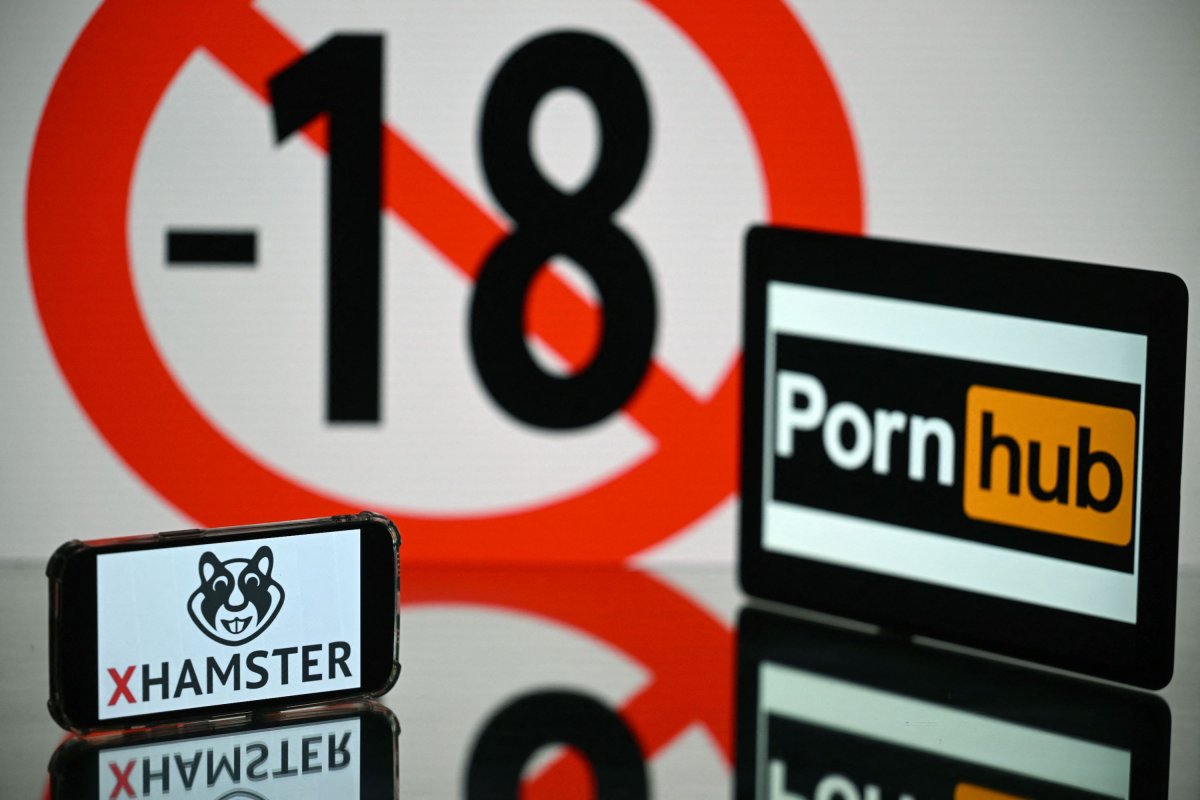Last Tuesday, the CEO and COO of MindGeek, the parent company of Pornhub, resigned. The shocking move happened in the wake of a damning investigation by the New Yorker detailing horrific stories of child sexual abuse and nonconsensual videos, which the company monetized with ads and globally distributed to up to 130 million visitors per day. Feras Antoon and David Tassillo appear to have left suddenly without naming a new CEO and COO, indicating the decision was likely made abruptly despite their protestations to the contrary.
The same day the companies' top executives jumped ship, 200 or more MindGeek employees were fired, according to multiple sources. The layoffs were done without even a day's notice, via Zoom, in batches. One employee said "the people being laid off were forcefully muted so they couldn't speak or ask questions. The layoff was immediate, and all accounts were disabled within minutes."
The firing style was true to form—calloused and careless about the human cost of the company's decisions and ruthless toward those who might protest. Angry employees close to the top executives began reaching out to me almost immediately, letting me in on some of MindGeek's best-kept secrets.
All of this foreshadows what victims, activists, politicians, journalists, and over two million citizens have been waiting for—justice, accountability, and an end to impunity for Pornhub and its executives. But two entities that have been profiting from the content on Pornhub are still escaping needed scrutiny. Namely, Visa and Mastercard.
You see, free porn isn't actually free. Not only is there a human cost, but the value of free porn is quantified with advertising revenue for the mega-corporations that run the sites (and the companies that process payments for the ads). Around every Pornhub video are advertisements by TrafficJunky, the advertising arm of MindGeek.
On Pornhub, videos of children being abused; women being incapacitated, drugged and assaulted; and videos from spy cameras placed in school "prom" toilets have had flashy ads before and around them for things like "Weedmaps," the "world's strongest testosterone pills," and sites to "jerk off to random teens." Such advertisers purchase Pornhub ads like these using their Visa or Mastercard through MindGeek's TrafficJunky, whose website tagline is, "your customers are on Pornhub so why aren't you?"
Pornhub still hosts blatant abuse content that could constitute sex trafficking. Why? Because the site does not reliably verify the age and unambiguous consent of every individual in every video. Meaning, any ad on a Pornhub video is at risk of monetizing illegal content to the benefit of MindGeek, Visa, and Mastercard. Under the U.S. Trafficking Victim's Protection Act it is unlawful to knowingly benefit from a trafficking venture.

MindGeek boasts 4.6 billion daily ad impressions across its free porn sites. The (now former) CEO of MindGeek, Feras Antoon, said 50 percent of company revenue is from advertising and The Logic pinned that ad revenue at $218 million in 2018. Antoon declared Pornhub is "an ad-supported platform, that's how we make our revenues, that's how Pornhub makes its revenues."
Whistleblower moderators said they were encouraged to let as much content through as possible. More content equals more site traffic, which results in more ad revenue. One senior manager admitted that Pornhub avoids age verification because it doesn't want to lose traffic and revenue. "MindGeek loses money. Any age verification devastates traffic," she complained. "Pornhub stands to lose 50%+ of traffic.... It costs us money to verify and overall it's a disaster."
In 2020, the New York Times caused international shockwaves when its exposé, "The Children of Pornhub," told the harrowing stories of victims sexually abused on Pornhub as children. Within days, Visa and Mastercard announced they were cutting ties with the site, earning positive global media attention for their actions. The CEO of Mastercard went so far as to publicly announce that its own investigation found child sexual abuse material on the site, compelling it to ditch Pornhub.
But the announcements and pronouncements only went halfway. The credit card companies cut off the public-facing transactions, such as Pornhub Premium memberships, but recently a senior MindGeek employee told me (and it was confirmed) that both Visa and Mastercard continue to facilitate profits from Pornhub content—they are just using the "back door" of TrafficJunky where it isn't as obvious to the public.
It is unacceptable that Visa and Mastercard still enable their cards to generate revenue from Pornhub. Last year, 34 women who were raped, abused, and trafficked on Pornhub—including 14 who were children at the time—sued Visa and Pornhub for allegedly "knowingly profiting" from their exploitation.
If credit card companies stopped enabling transactions for Pornhub advertising, they could force the site to halt its harmful practices once and for all. Nothing made the power they hold over Pornhub more apparent than when, in 2020, days after Mastercard and Visa announced they were cutting off payments, Pornhub removed 80 percent of the entire website—10 million unverified videos—in less than 24 hours. One MindGeek representative explained that "changes are solely because of what type of content that major credit card companies are willing to work with."
We need to hold Visa and Mastercard to their word. They said they were going to stop doing business with Pornhub, so they must stop doing business with Pornhub's main source of revenue. Lip service won't stop the global distribution of sex crime footage for money. It's time for Visa and Mastercard to act on their public promises.
Laila Mickelwait is founder and CEO of the Justice Defense Fund and the global #Traffickinghub movement. Follow her on Twitter: @lailamickelwait
The views expressed in this article are the writer's own.
Uncommon Knowledge
Newsweek is committed to challenging conventional wisdom and finding connections in the search for common ground.
Newsweek is committed to challenging conventional wisdom and finding connections in the search for common ground.
About the writer
To read how Newsweek uses AI as a newsroom tool, Click here.








